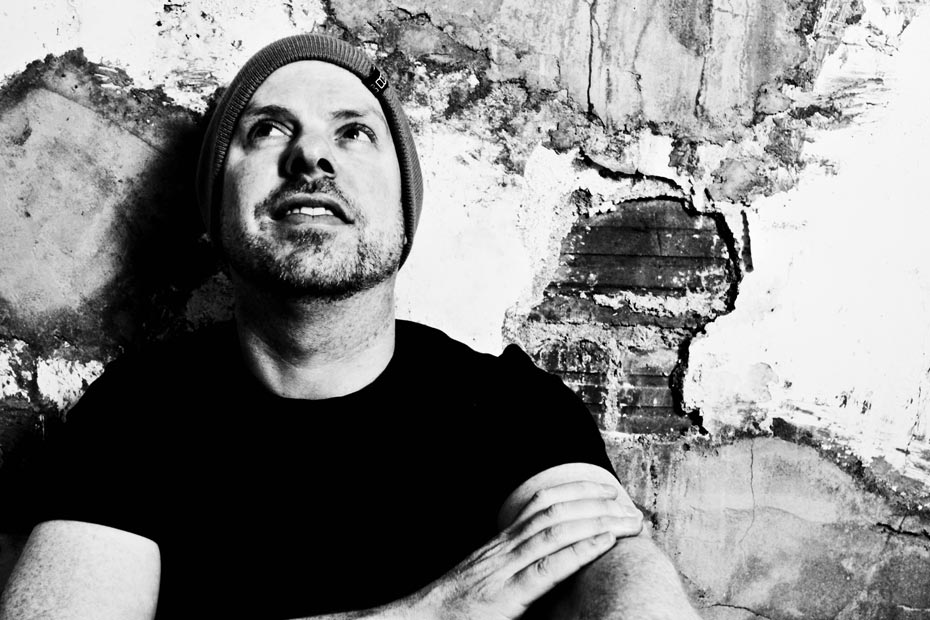Decibel Festival Director Sean Horton


If it is your favorite genre or not, you’re at least loosely familiar with the concept of electronic music. In 2002, it was neither widely known nor an appreciated style. In Seattle, WA, Sean Horton has seen it all when it comes to that world, starting with Ableton 1 and simple light shows to the current stage magic being performed today. As his team celebrates twelve years of innovative music, art and technology, we caught up with the wizard behind the curtain of dBFestival.
[soundcloud url=”https://api.soundcloud.com/users/262994″ params=”auto_play=false&hide_related=false&show_comments=true&show_user=true&show_reposts=false&visual=true” width=”100%” height=”450″ iframe=”true” /]ELEVEN: What can you tell us about the origins of dBFestival?
Sean Horton: When I moved to Seattle in 2002 for a job, there wasn’t really much going on in terms of electronic music at all, whether it be underground or mainstream… so I started a production company called Dreaming in Stereo and started booking smaller shows, more on the weekday kind of fit. That grew pretty quickly over about a year, year and a half. It wasn’t until going to MUTEK in 2003 and seeing what MUTEK in Montréal was doing in terms of venue-based urban festival, that it gave me the idea to attempt something similar in Seattle.
11: What has changed in 12 years of doing it and learning each year how to do something a little different?
SH: One, we had 2,500 people, and literally over the past four years now we’ve been averaging over 25,000. Though the format is similar in terms of it being multiple venues, and having a daytime conference, and after-hours, the format hasn’t really changed much, but the size and scope certainly has. We’ve moved out of smaller club-based venues into larger theater spaces and warehouses. The other thing that has changed dramatically I’d say is the audience.
We’re seeing a younger influx of millennials that have gotten into Decibel and that we’re seeing come out for events, so consistently every year it gets a little bit younger in terms of the audience. You still have your traditional Decibel core audience that I’d say represents anywhere from like mid-20s to mid-40s, but it has been interesting and inspiring to see a younger audience getting into underground and experimental forms of electronic music. I think a lot of it has to do with the conference, which we really promote heavily towards high school and college. It’s a free opportunity for people that want to learn how to produce, and learn how to DJ, and learn how to market their music, [which] they will not get in public schools. Even college education doesn’t teach a lot of this stuff, so I think that the conference and the educational side of what we do is a big reason why we’ve consistently been able to bring in a younger, more vibrant audience. We’ve [also] gotten a lot more adept at curating the visual art and making the venues feel and look different each night. That’s a crucial part of any electronic music event, I think. I’d say at least the past five years there’s been a much more increased focus on visual art as part of the Decibel experience.
11: That’s an evolution too, e.g., projection mapping and such?
SH: Absolutely. It’s more about technology than it is about electronic music, and the technology extends to the education programs that we’re bringing to front. It extends to the way that we’re ticketing the event. It extends to the visual art. It extends to the way that people are performing. A lot of times with visual art it’s also interactive, so I think for me the technology is such a key component in how people perform the music and how the audience experiences the music.
11: Can you tell me more about the educational side?
SH: Absolutely. Every year we’ve hosted an educational component that takes place during the day Wednesday through Friday as part of the festival program. It is branded as dB Conference. This year we’re collaborating with CreativeLive, which is an online school of sorts based out of Seattle, and collaborating with them on building what is probably our most extensive dB Conference program to date. It’s free. It’s open to the public, and it happens during the day, so it’s not competing with any of the evening events that take place as part of the festival.
11: Can we get a dB Portland?
SH: Right after Decibel, actually, I’m moving to Portland to live with my fiancée, Anna. Obviously, Decibel being sort of my baby, something that I’ve financed and curated and founded, the goal is to definitely keep Decibel going. I want to keep Decibel going in my city, and if Portland is going to be my place of residence obviously trying to do things with Decibel there is going to be part of that equation.
We already have events lined up there in September. We’re hosting one with PICA as part of the Time-Based Art Festival, and another event at Liquor Store on September 18th, so there’s already some activity happening in terms of Decibel events being produced in Portland, which is exciting. I love the Portland community. I love the size, and the feel, and the energy of Portland. I’m excited to be a resident there once again, and depending on how things go with this year’s program and how the Portland community develops from an electronic music standpoint, absolutely there’s an opportunity for Decibel to find a new home in the Portland community. »
– Richard Lime



